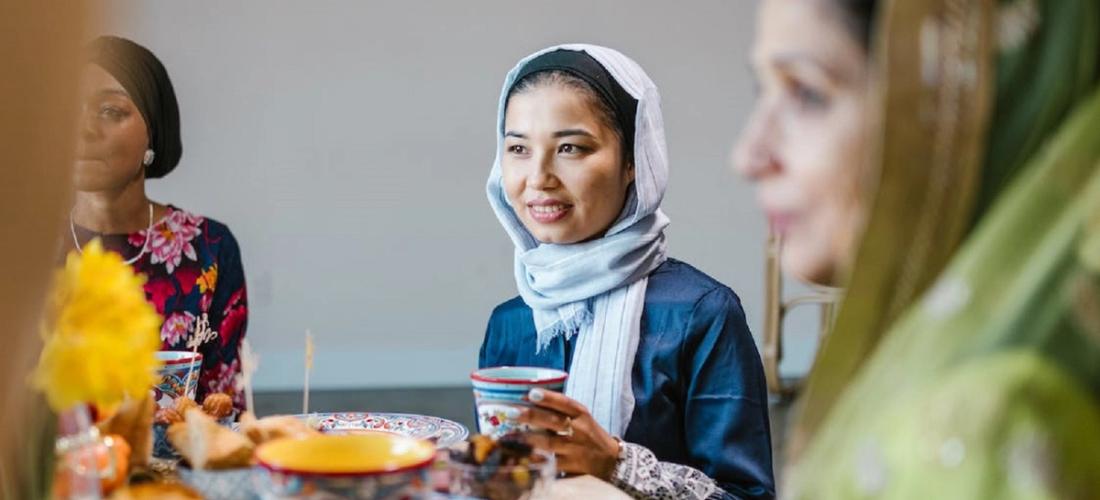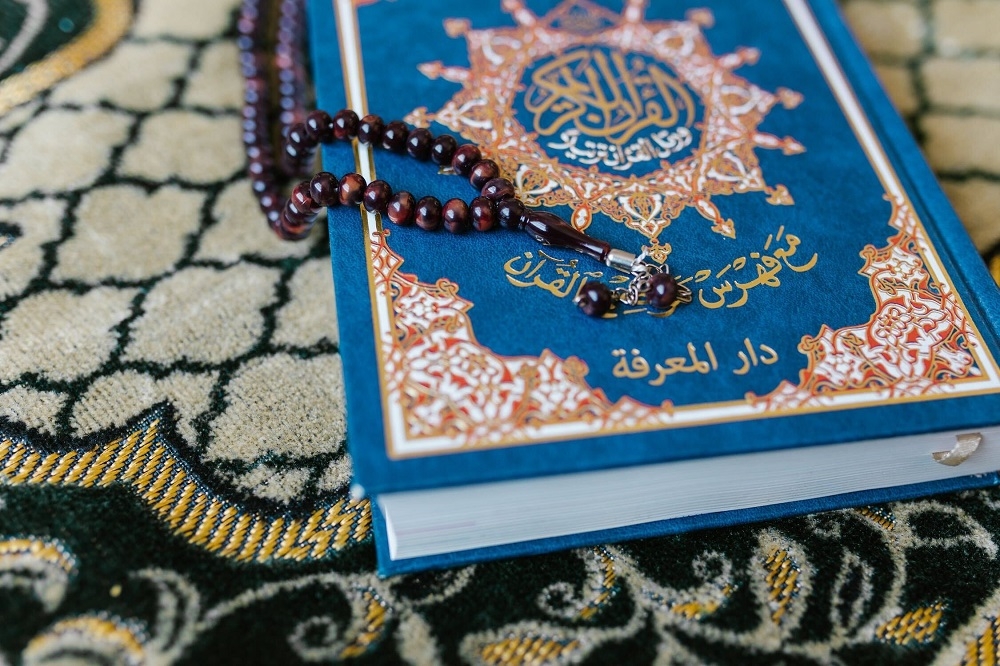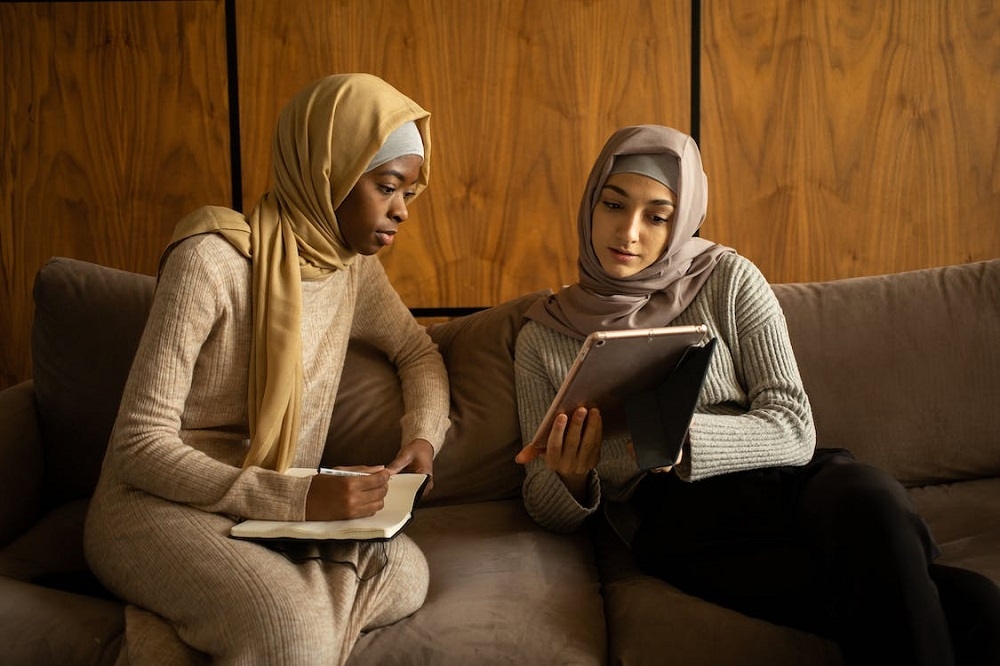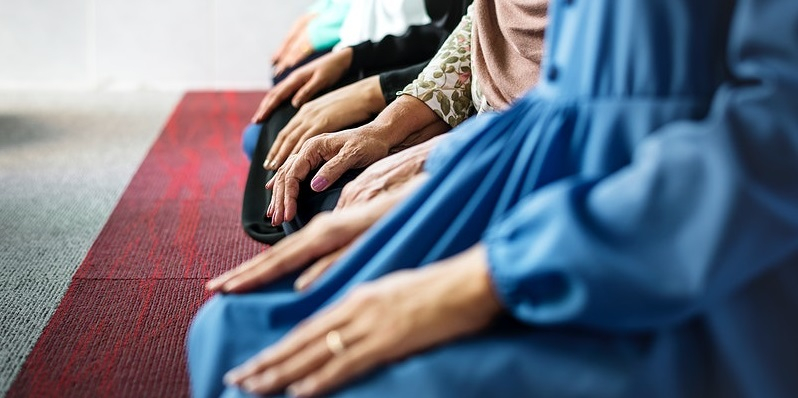How to Support & Build Community with Converts – A Guide for Born-Muslims
Faith
|
Sep 13, 2022
|
8 MIN READ

Image source: Pexels
Fact: It’s difficult to imagine what life is like for someone or what challenges they’ve faced if you’ve never shared the same experiences. But it’s important that we try for the sake of supporting community. One of the most important examples of this is how (or even if) born-Muslims prioritize the needs of converts to Islam in our communities.
Leaving the religion you were born into and converting to another is a major change in one’s life. It’s hard for those of us, born and raised Muslims, to even imagine what that would be like. Many of us who are Muslims by birth take the blessing of that for granted. Although we may not fully understand the struggles converts go through and obstacles they face, we must, as fellow Muslims, actively welcome them into Islam in an authentic and long-lasting way.
I am talking beyond the celebratory takbeer and hug after converts take their shahada.
Too often converts are embraced and congratulated after entering Islam and then left to figure the rest out with little to no help from their local mosque or community. While in reality, the post-shahada phase is a crucial time in which converts are in dire need of their fellow Muslim brothers and sister to help guide them through their new spiritual journey. And beyond the first few months, even more important are lasting friendships and meaningful communities of care.

Image source: Pexels
While there are several guides and videos about Islam out there for Muslim converts (including this comprehensive one by Haute Hijab), I had a hard time finding any targeting born Muslims on how to welcome converts into the religion and community in a sustained and authentic manner.
If you are a Muslim, born and raised, then this guide on how to welcome and offer sustained support to new Muslims in your community is for you!
Be Proactive
When I think of someone embracing Islam, I imagine it as being birthed into a new life where you are starting on a fresh clean slate on your spiritual path. Just like newborns, converts need some much needed TLC (tender loving care). They need to feel welcomed, loved and cared for. This is new territory for them, and they need guidance and support. They may become estranged from their family in this process, and it’s a vulnerable time.
You may not personally know any converts to Islam, but its on us to find out if there are congregants in our communities who are new(er) to Islam.
Be proactive and contact your local mosque to see if they already have a program in place where they can connect you to new converts who are in need of support. You can also reach out to your community’s volunteer organizations and halaqa groups to see if a sister’s convert circle is set up in which you are able to meet and connect with converts in your community.
If you are lucky enough to witness someone taking their shahada at the mosque, congratulate them in person and exchange numbers (if this is okay with them) in order to keep in touch. Check out this article that discusses the Institute for Social Policy and Understanding (ISPU)’s recent research on “Reimagining Muslim Spaces,” in which they discuss how to make our mosques more welcoming to converts.
A Welcome Kit

Image source: Pexels
Prepare a welcome kit for your new sister in Islam with some spiritual and self care essentials to help her ease into her new life. Plan a light visit soon after she has taken her shahada to check in on how she is doing and drop off the welcome kit. I would package it all in a nice basket that can be reused. Here are some ideas on what to include:
- The Holy Quran (Make sure it is translated in the appropriate language.)
- The Meaning of the Holy Quran in Today’s English
- Prayer mat
- Prayer clothes with a hijab (gift her one of our new Woven Prints!)
- Book: Project Lina: Bringing Our Whole Selves to Islam
- A journal and pen
- A candle or essential oil diffuser
- A small house plant
- Cozy socks
- A mug with the fixings for a hot drink (Do a little research to see what the sister likes – coffee, tea, hot chocolate, etc.)
As part of your welcome kit, offer to be your sister’s personal modest fashion consultant, if this is an area she needs help with and is open to. Converting into a new religion calls for major lifestyle changes and that includes the way we dress. Your friend may need help with sifting through her present wardrobe, what types of clothing items she should start shopping for and where to find staple pieces. But take it at her pace – getting acclimated to the different modesty guidelines in Islam takes time, and we should follow our convert sister’s lead in how she wants to proceed.
Frequent Check-In’s

Image source: Pexels
Make sure to check in often with your new sister in Islam. You can talk to her about what she is comfortable with in terms of frequency; you don’t want to overwhelm her. I would say a phone call one to two times a week would be a great start. Or if she is not a fan of phone calls, text her. See how she’s doing, if she’d like any emotional support, answer any questions she may have as she reads more about Islam and begins to practice.
Meet and Greet
Hosting a meet and greet to introduce converts to your circle of friends and family is a great way for them to slowly embed themselves into the community and get to know others. It’s important to keep your new sister in the loop and talk to her about group size and what she would be comfortable with. Again, this is all new territory, and some converts may get overwhelmed. Others may not be ready to meet more Muslims and would rather confine themselves to a select few.
Connecting converts with each other is another great opportunity for you to help your new sisters find comfort in sharing their experiences and/or struggles with others who are going through similar experiences.
If you are able to host a meet and greet, don’t let it be a one-and-done. Make plans to get together again!
Islam 101
There are several great resources for converts when it comes to introductory topics on Islam. My favorites are the Convert Care program from Rabata and the Faith Essentials learning modules from Al Maghrib Institute. These would make a beautiful welcoming gift!

Image source: Pexels
Making sure your sister is able to perform her daily prayers (or some of them as she builds her prayer habits) is another great place to start and help with. Salah is the second pillar of Islam and it is the one act of worship that distinguishes a Muslim from a non-Muslim. If she’s interested, you can show her how to create space in her home dedicated to salah.
The Prophet Muhamad (saw) said: “Between man and polytheism and unbelief is the abandonment of salat.” - Sahih Muslim
Get her started by offering one-on-one prayer sessions where you teach her the basics, from making wudu to the parts of prayer to performing the five daily prayers. Here is a detailed, step-by-step guide to help your friend as she starts to practice. (It would be a great idea to print this out into a binded booklet and include it in your welcome gift!) This is another great resource for salah tips.
I would recommend starting with one of the prayers and build your way up to five. Offer to pray with her regularly, perhaps Maghreb or Isha, to help encourage her to get into the habit. It takes time and practice to form a habit, so encourage her to be patient and give herself grace. Explain that salah is our private daily conversation with our creator. It is our breath of fresh air in the midst of a chaotic day.
Similar to mediation, it is our time to pause, reflect and ground ourselves. It is our time to speak to the one who is always there to listen. Reminding myself of this helps me shift my perspective on salah on days when I feel like it’s a task I need to check off my list.
Invite your friend to join local halaqa groups that you attend that she can easily follow along. Remember, you don’t want to overwhelm her.. Offer her a ride and spend some time chatting on the way. You can also host a re-occuring halaqa or Q&A session where you might discuss topics and questions your fellow converts and friends may have. We are all in different stages on our spiritual journey and can benefit from one another’s questions and knowledge.

Image source: Pexels
Outside of halaqas and helping your convert sister learn about Islam, try to schedule some fun hang-out time where you can get to know each other and enjoy fun activities, whether that’s just getting some coffee, a walk in the park, watching a movie together or whatever you want to do together.
Ramadan and Eid
Holidays are a special time in all religions, and the first holiday season as a new Muslim can feel lonely. Many converts are leaving their previous religion by themselves and may not have the support of their families and loved ones. Being there to help fill that void in any capacity, throughout the year, but especially during our holidays is crucial.
Ramadan and Eid are a time of communion, in worship and celebration, so be sure to include your fellow sister(s) in your celebratory plans. Fasting in Ramadan, no doubt, will be a challenge. Your convert friend may not be able to complete a fast or complete all 30 fasts, which is ok and part of the process. Be there for your friend. Check in with them and answer any questions they may have.
Invite them over for iftar. If your mosque holds a daily iftar, be sure to share that with them also. Offer to drive them to taraweeh with you and see if they would be interested in performing qiyam together. For Eid, coordinate with your sister where she will be praying Eid prayer and if she needs a ride. Invite her over for an Eid brunch, dinner or party that you may be hosting and be sure to gift her something special for her first Eid!
One Year Shahada-versary
The firsts in life are always a call for celebration. By now you have built a year long friendship and sisterhood with your fellow sisters in Islam. They have been through a lot of changes, highs and lows, and have (Insha’Allah) completed one full year of being Muslim, Masha’Allah. This calls for a celebration!

Image source: Pexels
Whether it is a lowkey brunch between the two of you or a surprise party with others, ensure that they feel recognized, special and loved. Allow them to reflect on their past year and share what their goals are in the coming months and year. This would also be a great activity to do with others at the celebration who are Muslim-born. Self and spiritual reflection are a building block of our faith regardless of where you are.
I hope this post has inspired you to go out and meet the converts in your community and foster friendships and sisterhood. Writing this post has personally helped me think more intentionally about what I’d like to do in my own community when it comes to convert care, an area in which I would like to improve.
What would you add to this guide? Please share in the comments below!
Subscribe to be the first to know about new product releases, styling ideas and more.
What products are you interested in?

